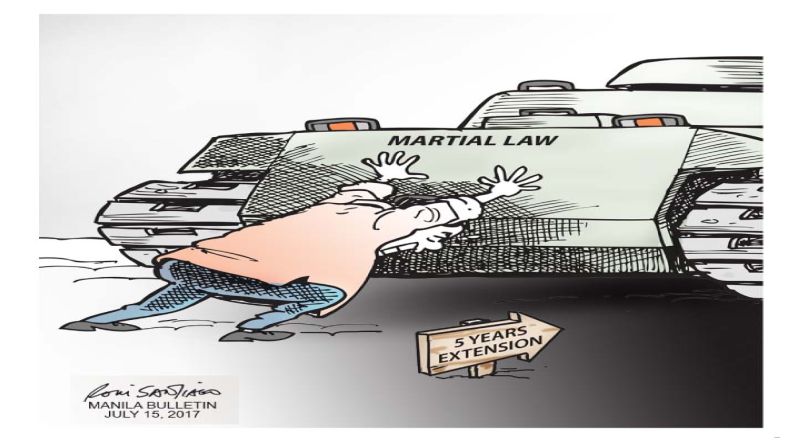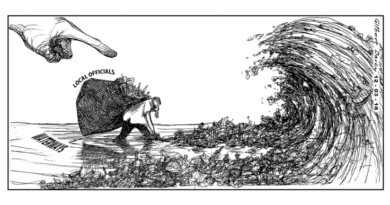We don’t need 5 years of martial law
If, as proposed by some lawmakers, President Duterte were to prolong the period of martial law in the Philippines to five years, the implication is that the government has not been able to stop the rebellion or invasion of the country.
The Supreme Court upheld the proclamation as the Maute attack on Marawi City was deemed a rebellion with assistance from foreign elements identified with the Islamic State. The proclamation was for a 60-day period as provided by the Constitution and that period ends on July 22. Congress may, upon the initiative of the President, extend the proclamation for a period to be determined by Congress “if the invasion or rebellion shall persist and public safety requires it.”
The fighting continues to this day in Marawi City as the Maute rebels continue to hold on to their positions in three barangays of Marawi City. The Armed Forces of the Philippines (AFP) appears to have decided against an all-out assault to root them out, so as to keep casualties down, considering that Islamic State fighters could be out to seek martyrdom. But the AFP believes it will not be long before the Maute fighters are driven out of their present positions.
AFP spokesman Brig. Gen Restituto Padilla Jr. said the military will soon submit its recommendations to President Duterte on a possible extension of martial law, but he said extending it by five more years “may be too long.” He evidently doesn’t see the state of rebellion persisting for such a long period of time. For one, it would mean the AFP’s inability to stop the Mautes.
He said he did not know the basis for Speaker Pantaleon Alvarez proposing continuing martial law for five more years, until the end of President Duterte’s term of office. That would be a political decision, he said. It does look like the political leaders in Congress have a political agenda quite apart from the reality of the military and security situation on the ground in Mindanao.
There is a second consideration that would arise if martial law were to be extended to five years. It would mean a disruption of all the plans of the President for Mindanao, most notably the peace agreement with the Bangsamoro leaders of an autonomous region or regions under a federal form of government, following amendment of the Constitution. It would not do to carry out such a plan under martial law conditions.
All plans for the economic development of the region would have to be set aside. Tourists would not be attracted to visit; it simply would not be fun. Investors would not want to put their money in projects under the abnormal conditions of martial law. All the regular processes of government would lie in the shadow of martial rule.
For all these reasons, we do not foresee a five-year period of martial law in Mindanao or any other part of the country. The Maute siege was a problem that is well on the way to being solved by the AFP and the rest of the national government.
President Duterte is doing well in carrying out his program of change for the country, particularly the massive infrastructure program that he has announced for the country, including a railroad system around the entire island of Mindanao. He will carry it out, along with his other programs for the country, and he does not need martial law to do it.









